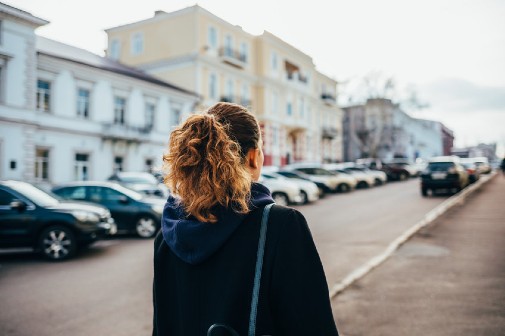Women are homeless in greater numbers than has previously been assumed, new research shows
Posted on 16 December 2021
 The report makes recommendations nationally for system change in the way homelessness and domestic abuse services are designed, delivered and commissioned.
The report makes recommendations nationally for system change in the way homelessness and domestic abuse services are designed, delivered and commissioned.
The report, from the University of York and London-based homeless project, Fulfilling Lives in Islington & Camden, says that while the research was conducted in the capital - women’s homlessness is a national issue.
Findings include:
- Women are more likely to experience hidden homelessness (when people exist out of sight in temporary accommodation, squats or with friends and family.
- Women’s experiences are very distinct from those of men.
- There has been a failure to recognise, count and respond to women’s homelessness effectively.
- Lone adult homelessness is as likely to be female as male – women are just less visible.
- Domestic abuse and other forms of gender-based violence are near universal experiences for women who experience homelessness
Researchers say existing recording and counting systems in England do not accurately record all the women experiencing homelessness. However, pre-pandemic data indicates at least 14 per cent of rough sleepers in England are women.
Violence and abuse
Lead author Joanne Bretherton from the Centre for Housing Policy at the Department of Social Policy and Social Work said: “Women experiencing homelessness are living in a state of survival, often without access to services and in high-risk environments where they are frequently subjected to violence and abuse”.
Professor Nicholas Pleace, Director of the Centre for Housing Policy added:“The nature and extent of women's homelessness has long been misunderstood. Women have been neglected and let down by the systems that should have been there to support them.”
Over 100 women who were homeless took part in the research. One woman recounted how she had resorted to, "walking around all night, going on buses, sleeping in hospitals... sleeping alone in woods.”
Recommendations for change
Drawing on existing and previously unexplored data as well as lived experiences, the report makes recommendations nationally for system change in the way homelessness and domestic abuse services are designed, delivered and commissioned.
Researchers concluded that the current system is shaped in a way that overlooks women's homelessness - the definition isn’t inclusive of all types of homelessness, counting focuses on environments which women often avoid, and research has previously oversampled men. This results in women living in a state of survival, often without access to services and in high-risk environments where they are frequently subjected to violence and abuse.
Understanding women's needs
Lucy Campbell, Operational Development Manager at Fulfilling Lives in Islington & Camden added: “The women we support report feeling judged and stigmatized when experiencing homelessness – we need to raise awareness of the fact that women experiencing homelessness have almost always been subjected to violence and abuse, repeated trauma, societal inequality – and that they are survivors, who need support which fully understands and responds to their experiences.”
Among its recommendations, the report calls for an effective response to women’s homelessness centres on ensuring recognition and understanding of women’s needs, and in being prepared to create strategy and adapt systems to support these needs at both local and national levels. Researchers also say the connections between domestic abuse and homelessness need to be fully recognised.
Explore more news

Sodium channels in breast cancer cells a promising target for future treatments, study reveals
Thursday 25 July 2024

Cooling the classroom: University of York researchers to investigate UK schools’ responses to hot weather
Wednesday 24 July 2024

Hunter-gatherers kept an 'orderly home' in the earliest known British dwelling, study shows
Tuesday 23 July 2024

Study uses Game of Thrones to advance understanding of face blindness
Tuesday 23 July 2024

York academic contributes to new report on men’s health which reveals disparities between most and least deprived areas in the UK
Wednesday 17 July 2024
Media enquiries
About this research
The full set of recommendations and findings, alongside insights of lived experience and data on women’s homelessness can be read here
Explore more of our research.
